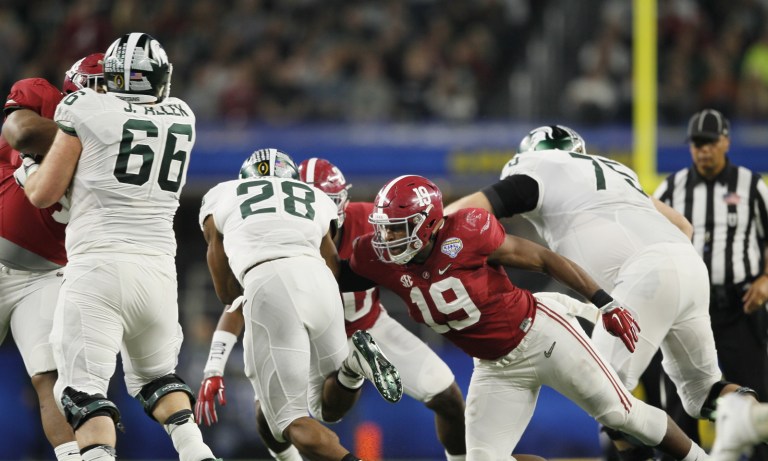A former Alabama linebacker has strongly pushed back against recent accusations claiming that he received improper payments during his time with the Crimson Tide. In an explosive response, the ex-player vehemently denied the allegations, calling them baseless and completely false. His statement has ignited a firestorm of debate over the validity of the claims and the broader issue of financial misconduct in college athletics.
The controversy erupted when reports surfaced alleging that several former college athletes, including this particular linebacker, had been involved in schemes to accept illicit payments while playing for their respective teams. The accusations, which made waves across social media and sports news outlets, were reportedly based on unverified sources. However, the former player wasted no time in issuing a public denial.
“I never accepted a single dime beyond what I was entitled to as a student-athlete,” the linebacker asserted in a scathing social media post. “These accusations are completely fabricated, and I am disgusted by the attempt to tarnish my name and the reputation of my alma mater.”
The linebacker’s strong response highlighted the emotional toll that these kinds of false claims can have on athletes, especially those who have worked hard to build their careers after college. He also made it clear that he intends to pursue legal action against those responsible for spreading the rumors.
The accusations have raised serious concerns about the ongoing battle for fairness and transparency in college sports, especially after the recent changes in NIL (Name, Image, and Likeness) rights, which have allowed athletes to profit from their personal brand. While the NCAA has faced increasing scrutiny for its handling of such issues, the case of this former Alabama player highlights the delicate balance between the evolving financial landscape in college athletics and the risk of unfounded allegations that can ruin lives.
This controversy is far from over. As investigations continue, many are left questioning the integrity of the claims and what the future holds for both current and former athletes as they navigate the increasingly complicated world of college sports.
